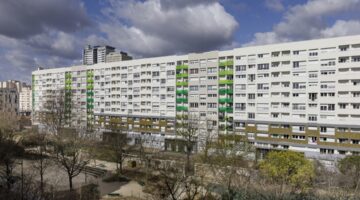

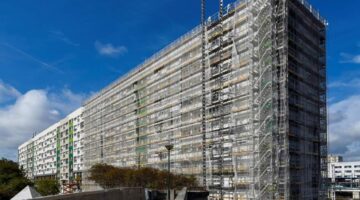
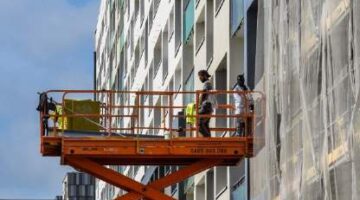
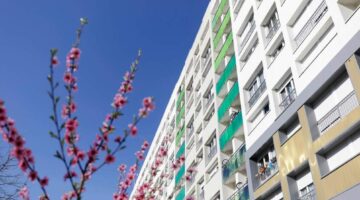

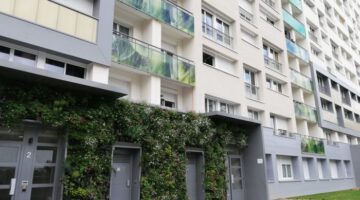
La résidence Gergovie- Rehabilitation to tackle energy inefficiency and social housing
Main objectives of the project
The project concerns the rehabilitation of a building of 299 social housing units, built in 1962. ICF Habitat bought this apartment block in January 2013 in the framework of an acquisition-improvement and this operation will be its first major renovation. The program focuses on improving energy efficiency, restructuring the outdoor, enhancing the building’s comfort and aestheticism. By improving the thermal performance without increasing the rent, ICH Habitat La Sablière tackles its tenants’ energy precariousness.
Date
- 2019: Construction
Stakeholders
- Constructor: ICF Habitat La Sablière
- Architect: A&B ARCHITECTES
Location
City: Paris
Country/Region: France, Paris
Description
ICF Housing is the housing subsidiary of SNCF (the train company in France). Born to provide housing to SNCF employees, now ICF Housing is one of the largest housing operators in France. Despite not being just a social housing operator, his aim is to develop diversified housing solutions, with affordable housing at the center of their policies. 84% of their managed housing is social housing. In 2013, they bought an old building in Gergovie street, in the 14th District of Paris.
The building aimed to be rehabilitated, together with the nearby urban space. Yet, the main goal was to achieve a energy efficient building. This was structured in three main objectives: Setting a modernized heating system, performing an insulation work on the building and coupling microgeneration with heat pumps and the use of waste energy. In fact, The collective hot water production system developed by ICF Habitat and its partners won an award at the Trophées Européen de l'Habitat Responsable in the "environmental sustainability" category. The system cuts the cost of domestic hot water production by a factor of 2, while maintaining an affordable level of rental charges. It combines economic and social performance (combating fuel poverty) with environmental performance (introducing 50% renewable energy and dividing energy consumption and CO2 emissions by 2). The system comprises two gas microgenerations coupled with four modular heat pumps designed to recover waste energy (the fumes from boilers dedicated to central heating) and cover the residence's domestic hot water needs. Operation is based on a synergy of exchanges, enabling heat gains at every stage. The cogeneration units are controlled and managed by modular heat pumps developed specifically for this coupled application. Thai changes made the building a front-runner case for the Plan Climat of Paris.
Apart from the climatic action, the project has developed other rehabilitation actions, such as the refurbishment of common areas, the creation of new bicycle/stroller and waste sorting areas, the creation of a new reception desk, the revegetation of entrances and roof, a complete overdo of outdoor areas, including a space for a shared garden, the residentialisation with access control, new intercom system and secure main entrances… Moreover, 5 apartments for people with reduced mobility were created on the first floor, with restructuring of the former entrance halls
Consultation with tenants was key to the project and led to a shared diagnosis and a program of works in line with their expectations. Through interviews at the foot of the buildings and workshops, residents expressed their wishes for the development and evolution of their living environment: dedicated areas (strollers, bicycles), household waste management, green space development, pathways, building approaches, parking organization, relationship with the square, etc. A vote enabled everyone to express their opinion on the choice of the exterior development project. Carrying out a project of this type in an occupied environment presented a certain complexity and many inconveniences. This project was made possible thanks to the strong involvement of the tenants' association, the support of local authorities and public authorities, and the professionalism and innovative spirit of our teams.
The housing units increases the capacity to offer social housing to SNCF employees. This takes on particular importance following the launch of the “housing guarantee” policy, a scheme offering newly recruited railway workers in the Île-de-France region housing at a rent commensurate with their salary level.

